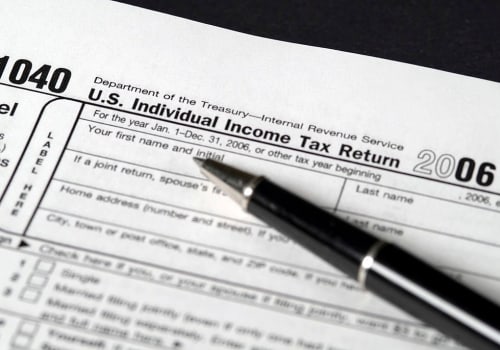Six years due to major income underestimations. The statute of limitations is six years if your return includes a “substantial underestimation of income.” This usually means that you've left more than 25 percent of your gross income. Many taxpayers report income from a business or business. A special rule requires gross revenues from the sale of goods or services for the purposes of Sec.
Therefore, the numerator when proving an omission greater than -25% will be higher than would be expected if the omission comes from such sales receipts. The “positive side” is that the denominator will also be higher, and the net effect will depend on a calculation of two raw numbers, not two net numbers. A number of non-commercial taxpayers have raised the argument that, like the calculation of sales of goods and services, gross revenues from declared sales of property or securities should be considered the gross sales price not reduced by any related basis or cost. This serves to increase gross income as originally stated in the return (the denominator) and thus reduces the percentage resulting from any omitted unreported income.
If successful, this argument would often prevent such taxpayers from applying the six-year statute of limitations when the 25% calculation is made. Unfortunately, this hasn't been a winning argument for taxpayers who aren't in a trade or business. Courts have consistently held that using the gross sales price for the sale of goods and services in a trade or business without any reduction in costs is a specific legal exception. Otherwise, the general rule of Sec.
Therefore, for the purpose of calculating 25%, gross income from sales of properties other than sales of goods by a business or company will in fact be net profit rather than the amount obtained, resulting in a lower denominator (see, for example, if an amount is disclosed in a return or in a statement attached to a return (in any way) that adequately informs the IRS of its nature and size, that amount will not be taken into account when determining the amount of gross income omitted for the purposes of the extended statute of limitations. This type of rule is increasingly common in all tax legislation, negative consequences can be avoided through disclosure. Since each case is unique, what constitutes adequate disclosure depends on the specific facts of each case. The good news for taxpayers is that the level of disclosure to avoid the extension of the statute of limitations is lower than the disclosure standard to avoid certain accuracy-related sanctions under Sec.
The general three-year statute of limitations for an income tax assessment under Sec. The Tax Advisor and the Tax Section. Generally, the IRS can include returns filed within the past three years in an audit. If we identify a major error, we may add additional years.
We usually don't go back further than the last six years. If the Service processes a tax return prepared under the authority of IRC 6020 (b), evaluating the tax accordingly, the evaluation date will begin the collection limitation period under IRC 6502 (a) (, but the evaluation limitation period under IRC 6501 (b) does not begin (. In the case of specialized programs, the appropriate program manager has the authority to approve the law's expiration report for submission to the Director of Specialized Programs.



